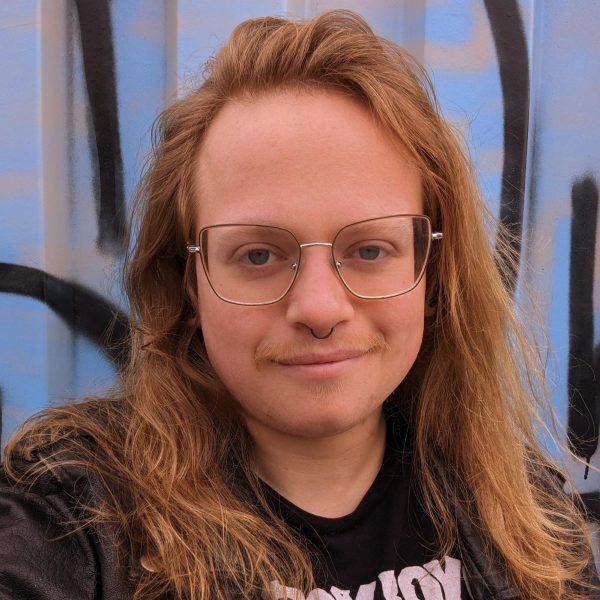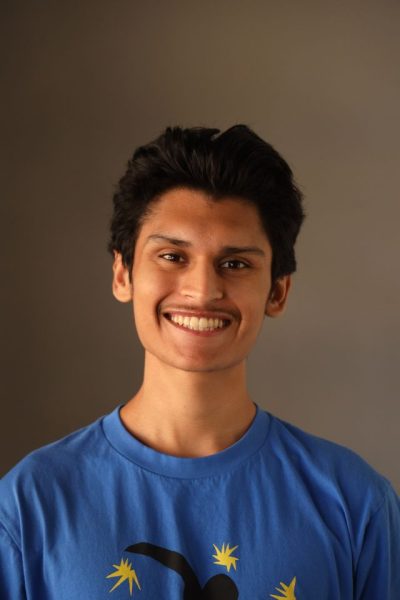The College of Alameda (CoA) hosted public forums for the three finalists vying for permanent College President on Thursday. Today marks the last day community members can watch the forums online and submit feedback.
The top contenders are Melanie Dixon, a former president of American River College, William “Terry” Brown, a longtime administrator at community colleges in Connecticut, and Rebecca “Becky” Opsata, the current Vice President of Instruction at Laney College.
The finalists answered a selection of questions curated from college stakeholders, such as faculty, classified professionals, students, and other community members. The questions explored community outreach, employee accountability, and equitable outcomes for students of color, among other topics.
The 45-minute forums were held both on campus at CoA and over Zoom. Merritt College President David Johnson moderated the forums.
Peralta Community College District’s (PCCD’s) Chancellor, Tammeil Gilkerson, will “review internal and external community feedback” community feedback before making a recommendation to the PCCD Board of Trustees. The board will confirm or reject the appointment with a vote.
PCCD hopes to announce the chosen candidate by June 1. The new CoA President is set to start July 1.
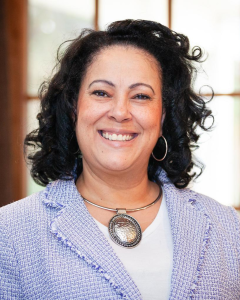
Melanie Dixon, a former president of American River College, is currently the Executive Director of Project Attain, a nonprofit focused on educational attainment for working-age adults. Dixon prides herself on her down-to-earth and “boots on the ground” work ethic. During her forum, Dixon spoke on her direct and collaborative approach to community building throughout the years while working at public institutions and educational organizations.
She emphasized that all voices and perspectives should be heard to reach desired results for any issue, citing examples of her experience building environments that allow for healthy discourse and relationships among students, staff, and administration. She also described how she uses evaluation as a “tool for growth,” yet there are times where “corrective action may be necessary.”
When asked about accountability at the administrative level, Dixon said that part of her job is to help people understand their roles. She acknowledged the issues facing Peralta concerning budget deficits and declining enrollment, and believes more accountability could improve those areas.
Dixon wants to make sure that administrators and members of the community demonstrate budget competency by having a clear understanding of the scope and restraints of district finances. She recognized that difficult decisions, such as cutting courses, sometimes have to be made, but she also plans to ensure the college leverages its funds to the best of its abilities.
When asked about creating equity for students of color, with respect to the academic outcomes of Black and Latino students graduating from Oakland’s K-12 public schools, Dixon cited work she has done throughout her career in establishing equitable environments for students of color and underrepresented communities.
“My work has been anchored in equity and closing opportunity gaps for students of all backgrounds,” Dixon said.
While at Folsom Lake College, she said, she addressed the effects of “learning loss” with incoming students by collaborating with the local high school to establish a math camp for underperforming students. She added that colleges can support students of varied backgrounds by offering properly translated materials for non-English speaking students and establishing more specific courses that would pique the interests of these students.
Dixon calls herself a “builder.” She believes that CoA needs a president that can help build an identity for the school while being fully transparent on the issues that persist in higher education.
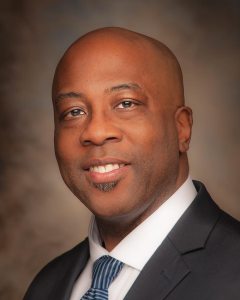
William Brown has spent 20 years working for community colleges in Connecticut. He is the former Chief Executive Officer for Gateway Community College, taking on the role during a drastic reorganization of Connecticut’s community college system. To Brown, accountability is “key” to making sure that community colleges are serving students.
“This is high stakes work,” Brown said, highlighting that community colleges often provide second or last chances for students. “And so we need to embrace the accountability that comes with that work because […] people’s lives depend on the work that we do.”
Brown mentioned that he has worked at all levels in education throughout his career, which allows him to provide different perspectives to various situations that may arise.
At previous institutions, Brown said, he made specific efforts to provide the necessary resources to the students he was serving. He believes that CoA has an obligation to focus on supporting students, and to collaborate with other colleges in the Peralta district.
When asked about student and employee empowerment and equity, Brown said it all starts at a basic level of respect. He believes that engaging in pointed and nuanced discussion between all levels of college employees on their specific challenges will lead to a point where they can proceed and fulfill their role in education.
Regarding nationwide protests across college campuses, Brown said that protecting free speech is a part of the educational mission, but not all forms of speech will be tolerated. He added that speech has consequences and that he will remain mindful and insistent that students understand the consequences of what they say. Brown underscored that he thinks harassment and hate speech have “no place in Alameda or any of our higher education institutions.”
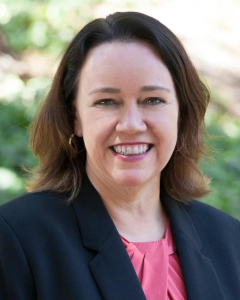
Rebecca Opsata has been the Vice President of Instruction for three years at Laney College. She said she is drawn to the sense of community at CoA and inspired by the college’s student-centered philosophy toward its post-COVID challenges.
Opsata’s approach towards employee accountability starts with clearly outlining job descriptions and expectations. She stated that educators are set apart from a regular private workforce by collaborative governance and collective bargaining, and that Peralta faces an obligation to the public as a taxpayer-funded school district. She also stressed that if higher-level managers, who do not have these bargaining agreements, are not upholding the responsibilities of their job title, she would intervene by setting goals and meeting with them regularly.
Opsata promised to honor CoA’s collaborative governance processes, although she noted the potential for it to become lengthy.
“It is a system that allows everyone’s voice to be heard – to me, that’s an equity project,” she said. Opsata herself was formerly involved in the faculty senate at Diablo Valley College, while she was a communications instructor.
Bringing in-person education back to CoA is also important to Opsata, though she discouraged the Peralta colleges from competing for students while making that transition. On the contrary, she encouraged those in attendance to “embrace the swirl,” referring to the ability of students to enroll at multiple colleges in the district.
Opsata referenced her track record of developing relationships within Oakland’s public K-12 schools during her time at Laney College as a technique for engaging the community. Though she conceded to not knowing the Alameda Unified School District well, she suggested that CoA could do more to target dual enrollment students. A focused effort to increase dual enrollment would aid in enrollment decline, she said, functioning like an outreach event.
“We need to be tabling, people need to see us.” Opsata said. “As your president I would work very hard on that.”
Opsata acknowledged a need for efficiency, fair workloads, and the potential for internal promotion in her relationships. “You should all work together to make sure that people are enjoying their jobs,” Opsata said. “If they’re not, then as president, it’s my job. I must make that better.”
Noting the recent leadership turnover at CoA, Opsata ended by assuring attendees of her local ties as an East Bay resident and current Peralta administrator. “I’m not psychic,” she said, but “I’m not looking to go anywhere else.”
Links
Melanie Dixon: Forum | Feedback
William Brown Forum | Feedback | LinkedIn
Rebecca Opsata Forum | Feedback | LinkedIn
Related
Laughs, questions at CoA president search listening session
Finalists for CoA President unveiled
Featured photo: Faiza Ali/PCCD


























